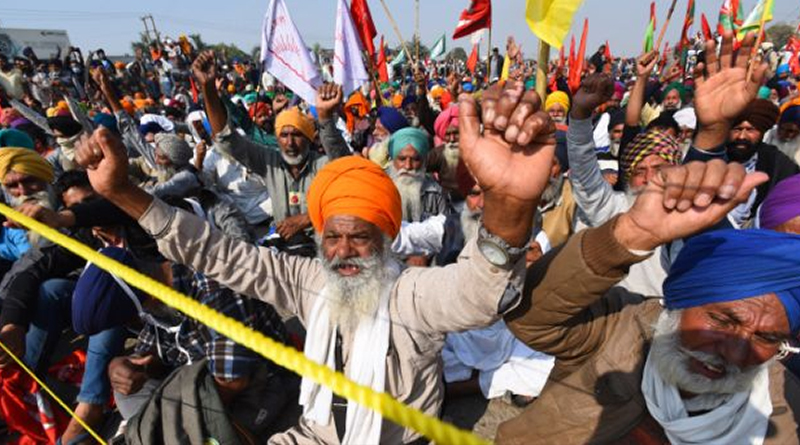The agitating Punjab farmers can be painted as saints or sinners. On the one hand, they spearheaded the Green Revolution in the 1960s when India was starving, helping India become not just self-sufficient but a grain exporter. For this they were rightly called heroes.
But by growing water-guzzling crops like rice in a low-rainfall state, Punjab farmers lowered the water table dramatically. First, all drinking water wells ran dry. Then the shallow tubewells of smaller farmers ran dry. The richest farmers with the deepest wells benefited while hurting others and destroying aquifers. Besides, they now burn their crop stubble in October-November for early wheat planting, injuring and killing thousands in Delhi and surrounding areas with smoke pollution. For a few extra rupees, the farmers feel justified deliberate pollution that is morally criminal.
Punjab farmers have huge political clout and extract massive subsidies invisible to the public. Economist Ashok Gulati reveals that Punjab farmers get annual power subsidies of Rs 8,275 crore and fertiliser subsidies of Rs 5,000 crore, averaging Rs 1.22 lakh per farm household. In addition, they get subsidised credit and PM Kisan grants. Their high farm income translates to high land prices of Rs 50-100 lakh/acre. Industries do not invest in Punjab because land is exorbitantly expensive.
India’s average farm holding is only one hectare, which is why prosperity requires farmers to move out of farming into industry and services. But in Punjab one hectare is worth Rs 1.25-2.5 crore! They may not look it, but the farm agitators surrounding Delhi are lakhpatis in annual subsidies and crorepatis in assets.
Autocracies like China would smash such agitations. But democracies do not shoot agitators. If the agitators are numerous and influential enough in elections, the state will strike a deal with them. That is why farmers get enormous subsidies in Europe, the US, Japan, and Korea. India is not alone.
The Punjab agitators want Prime Minister Narendra Modi to repeal his three farm reform laws. But these laws are highly sensible. One allows farmers to sell produce anywhere in India, not just in government mandis where they pay levies and commissions. The second lays out a framework for contract farming, which is voluntary and mutually beneficial. The third amends the Essential Commodities Act that historically has been used to stop produce moving across states and impose stock limits on traders. The latter has made it impossible for traders to build large global-sized warehouses — any stock limit announced by a state government will make the warehouse owners instant criminals. Freedom to sell anywhere in India should be seen as a fundamental farm right, and stock limits should be seen as socialist dinosaurs thwarting a modern warehousing system. Modi must stick to all three laws.
Punjab farmers have benefited from government procurement of wheat and rice at a Minimum Support Price, something not done for other crops. Only 6% of Indian farmers benefit from MSPs, but they are concentrated in Punjab and have huge clout. Modi has guaranteed that MSPs will continue regardless of the new reforms, but the farmers worry that the reforms are the first steps to ending MSPs, and so want the laws rescinded. Government stocks of rice and wheat are already thrice what are needed for buffer stocking. The heroic farmers that once fed Indians are now feeding rats in government godowns. Shockingly, physical audits have consistently shown the disappearance of millions of tonnes in government godowns because of theft or rodents.
As long as the MSPs are below the world price, surpluses can be exported. But when politics forces MSPs above the world price, the grain lies idle in godowns, feeding neither Indians nor the world. It is folly to subsidise farmers to produce what neither Indians nor the world wants. Keep MSPs by all means but link them to world prices. Experts all agree that farmers must be moved massively out of agriculture to increase farm sizes and income. Second, Punjab farmers should be encouraged to diversify into high-value fruit, vegetables and dairy which will need much less scarce water than the rice-wheat rotation, and reduce stubble burning too.
But these are long-term aims. Right now, Modi should wait out the agitators. He should smile warmly at them, swear his heart is with them, guarantee MSPs, and insist they have been misled by opposition politicians. Indeed, he should announce a big wheat procurement bonus in the coming rabi season. He should overflow with sweet words and inducements but stand firm on his eminently sensible reforms.


